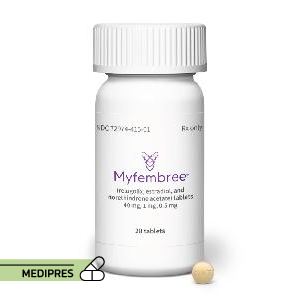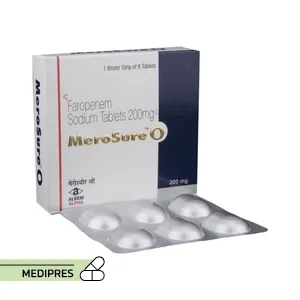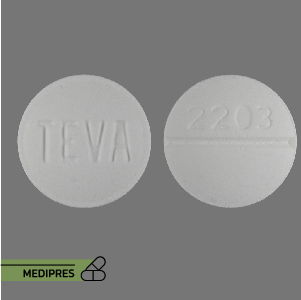
Morphine
23 June, 2023
Nabumetone
23 June, 2023Myfembree
Generic name:
Relugolix combination (Relugolix, estradiol, and norethisterone acetate)
Drug class:
Gonadotropin-releasing hormone (GnRH) receptor antagonist combination, hormonal therapy
Dosage form:
- Oral tablets (combination tablet containing relugolix, estradiol, and norethisterone acetate)
Root of administration:
Oral
Dose:
- One tablet daily containing 40 mg relugolix, 1 mg estradiol, and 0.5 mg norethisterone acetate
- Exact dosing and duration vary by indication; typically continuous daily dosing without interruption
- Adjustments based on clinical response and tolerability
Mechanism of action:
Relugolix is a GnRH receptor antagonist that reversibly suppresses the release of luteinizing hormone (LH) and follicle-stimulating hormone (FSH), resulting in decreased ovarian production of estradiol and progesterone. The combination with low-dose estradiol and norethisterone acetate helps mitigate hypoestrogenic side effects while maintaining therapeutic efficacy in estrogen-dependent conditions.
Drug usage cases:
- Management of moderate to severe pain associated with uterine fibroids (leiomyomas)
- Treatment of moderate to severe endometriosis-associated pain
- Management of heavy menstrual bleeding linked to uterine fibroids
- Off-label uses: Varies by indication; consult specific label and clinical guidelines
Drug contra indications:
- Known hypersensitivity to relugolix, estradiol, norethisterone acetate, or any excipients
- Pregnancy or breastfeeding
- Undiagnosed abnormal uterine bleeding
- History or presence of thrombosis or thromboembolic disorders
- Active or history of arterial thromboembolism (e.g., stroke, myocardial infarction)
- Severe hepatic impairment
- Estrogen-dependent neoplasia (e.g., certain breast cancers)
- Undiagnosed vaginal bleeding
- History of hypersensitivity to hormone replacement therapy components
Side effects:
- Hot flushes
- Headache
- Fatigue
- Nausea
- Decreased bone mineral density (risk increases with longer duration of treatment)
- Weight gain
- Abnormal uterine bleeding or spotting
- Vaginal hemorrhage
- Depression or mood changes
- Hair thinning or loss
- Increased blood cholesterol
- Muscle spasms
- Potential increased risk of cardiovascular events (especially in patients with risk factors)
Warnings:
- Monitor bone mineral density; prolonged use may require assessment due to risk of osteoporosis
- Increased risk of thromboembolic events; avoid in patients with history or predisposition
- Use caution in patients with hepatic impairment; liver function monitoring recommended
- May cause fetal harm; pregnancy must be ruled out before initiating therapy
- Monitor for mood changes and depression
- Not recommended for use in combination with other hormonal therapies
- Discontinue if unexplained vaginal bleeding occurs
- Concomitant use with strong CYP3A inhibitors or inducers may affect plasma levels
- Potential interactions with anticoagulants and other hormonal agents
Use during pregnancy or breastfeeding:
Myfembree is contraindicated during pregnancy due to potential risk of fetal harm from hormonal components. Pregnancy should be excluded prior to initiation and effective contraception recommended during treatment. If pregnancy occurs, discontinuation is advised. Breastfeeding is not recommended during treatment as the safety of relugolix, estradiol, and norethisterone acetate during lactation has not been established; excretion into breast milk may pose risk to the nursing infant. Alternative feeding methods should be considered for mothers requiring therapy.



